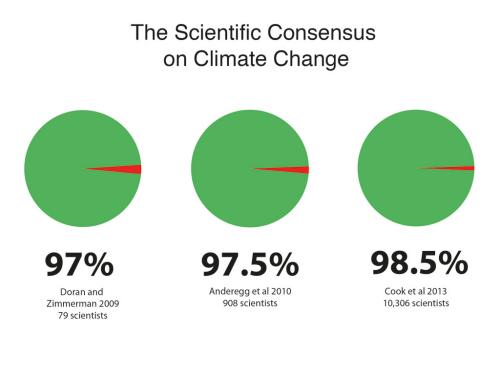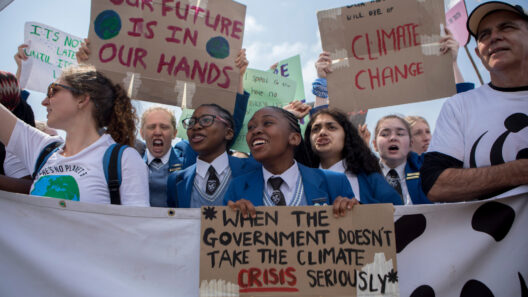Climate change is one of the most pressing challenges facing humanity today, yet a pervasive question looms large: Do all scientists agree on climate change? The simplicity of the question belies the complexity of the scientific consensus surrounding this urgent issue. To clarify, there exists a robust agreement among climate scientists regarding the reality of climate change and its anthropogenic origins; however, misconceptions and vestigial doubts persist among the general populace. This article endeavors to delineate the consensus within the scientific community, elucidate the nuances of disagreement, and explore the imperative of acknowledging this overwhelming agreement in the discourse on climate change.
The scientific consensus on climate change can be traced through various research initiatives and assessments. Notably, the Intergovernmental Panel on Climate Change (IPCC), established under the auspices of the United Nations, serves as a primary source of information regarding climate science. Their comprehensive reports, built on the contributions of thousands of scientists worldwide, indicate that the Earth’s climate is warming due to human activities—most significantly the burning of fossil fuels, deforestation, and various agricultural practices. The 2014 IPCC report unequivocally stated that more than 95% of climate scientists attribute the acceleration of climate change to human causes. This statistic signifies a remarkable level of agreement, akin to consensus in domains such as quantum physics or cellular biology.
Further cementing this consensus is the survey conducted by John Cook and colleagues, which examined the abstracts of over 12,000 published climate-related papers. Their research revealed that approximately 97% of the papers asserting a position on climate change acknowledged that human activity is contributing to the phenomenon. The significance of this statistic extends beyond mere numbers; it demonstrates the overwhelming empirical support for the assertion that climate change is not just a theory but an established scientific reality.
In exploring the intricacies of scientific opinion, it is essential to recognize the diverse types of climate-related research that elicit varying degrees of consensus. Certain aspects of climate science, such as the basic premise that climate change is occurring and that it is largely driven by human activities, are widely accepted. However, other areas, including the specific magnitude of future warming, the timeline of climatic impacts, and the effectiveness of disparate mitigation strategies, can elicit more divergent perspectives among scientists. Such variability does not negate the consensus on human-driven climate change but illustrates the complexity of climate systems, which are influenced by numerous interrelated factors, including socio-economic variables and natural climate forcings.
Critics often exploit these nuanced disagreements to cast doubt on the veracity of the overall consensus. This tactic, rooted in selective interpretation, often overlooks the larger context: a consensus enjoys robustness when the foundational premise is agreed upon by a overwhelmingly vast majority. Moreover, the notion of “scientific debate” often misconstrued by non-specialists can lead to miscommunication; scientific debates are expected within disciplines, especially those that study dynamic systems like the climate, but this does not equate to a lack of agreement on core principles.
The media plays a crucial role in shaping public perception of scientific consensus. Sensationalist reporting can create the false impression that scientific opinions are deeply divided when, in truth, the overwhelming majority of experts support the anthropogenic origins of climate change. This distortion can engender confusion and apathy among the general populace, further complicating efforts to implement necessary climate action. Therefore, it is imperative for communicators to contextualize findings accurately, reporting not only the existence of dissent but emphasizing the magnitude of agreement.
Moreover, it is essential to appreciate the implications of climate science consensus in the policy domain. Political leaders and policymakers must take heed of the overwhelming scientific agreement to enact informed and effective environmental policies. For instance, the transition towards renewable energy sources, sustainable agriculture, and forest conservation are not mere suggestions but necessary actions backed by scientific inquiry. Denying or disregarding the consensus on climate change equates to foregoing evidence-based practices that could mitigate further ecological deterioration.
Artificially inflated skepticism regarding climate change can also lead to a detrimental fossilization of outdated practices and ideologies. The protagonists of climate denial pose not only a challenge to scientific integrity but also to the sustainability of future generations. As such, fostering informed dialogue about the scientific consensus on climate change is vital. Educational initiatives should emphasize climate literacy, enabling individuals to discern credible scientific information from misinformation.
The road ahead necessitates vigilance and perspicacity. The unequivocal affirmation of academic consensus regarding human-induced climate change serves as a clarion call for collective action. By equipping society with accurate information and promoting awareness of the established science, we can catalyze meaningful change. Those who perpetuate doubt may perhaps do so unintentionally; however, the consequences of allowing such skepticism to flourish are profound and far-reaching.
In conclusion, while not every scientist may agree on every detail regarding climate change, a staggering majority recognize its reality and human-induced nature. Engaging with this consensus is not only a matter of scientific integrity but also a socio-political necessity. As the climate crisis escalates, that acknowledgment becomes a cornerstone upon which we can build resilient strategies for the future. In doing so, we place ourselves at the nexus of action and accountability, paving the way toward a sustainable planet for generations to come.








